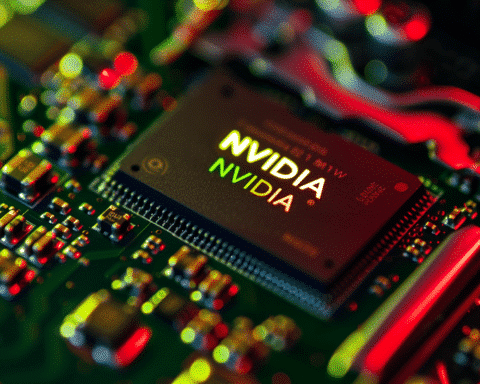Artificial intelligence (AI) has been a concern for some members of Congress for years, with little action taken to regulate the technology. While some lawmakers have expressed worries about the potential dangers of AI, there has been no bill proposed to protect individuals or halt the development of potentially dangerous AI.
Representative Jay Obernolte noted that most lawmakers do not understand AI, making it difficult for them to regulate it effectively. Additionally, there needs to be a consensus on the dangers of AI before regulation can be implemented, which requires a deep understanding of the technology.
Struggles of Congress to Regulate New Technologies
Congress has a history of struggling to understand new technologies and regulate them effectively, as seen with the internet. Additionally, companies often push back against regulation, arguing that the industry needs few roadblocks as the United States competes with China for tech leadership.
The United States is taking a hands-off approach to regulating AI as companies like Microsoft, Google, Amazon, and Meta compete to develop the technology. Some fear that AI could eventually replace humans in jobs or become sentient.
Without regulation, companies prioritize financial and commercial interests over safety, according to Carly Kind, director of the Ada Lovelace Institute. The lack of regulation can encourage irresponsible AI practices and create a “race to the bottom.”
Leadership Role of European Union in Regulating AI
In contrast, the European Union has taken a leadership role in regulating AI, proposing a law in 2021 to regulate AI technologies that might create the most harm, such as facial recognition and applications linked to critical public infrastructure.
The law would require makers of AI to conduct risk assessments of how their applications could affect health, safety, and individual rights. Companies that violated the law could be fined up to 6 percent of their global revenue, potentially totaling billions of dollars for tech platforms.
The goal of the law is to maximize the benefits of AI while minimizing its societal risks. U.S. lawmakers, including Representative Donald S. Beyer Jr., are examining the European bill for ideas on regulation, but this process will take time.
Efforts to Regulate AI in the US
Efforts to regulate AI in the United States have been largely unsuccessful. The FTC and FDA have proposed regulations to curb data collection and monitor AI technology in medical devices.
The White House has issued a blueprint for AI regulations that stresses the rights of individuals and protection from algorithmic discrimination. However, none of these efforts have resulted in laws.
Tech companies have lobbied against policies that would limit how they use AI and have called for voluntary regulations. In 2020, Sundar Pichai and the U.S. Chamber of Commerce, along with more than 30 companies, lobbied against facial recognition bills.
The lack of successful efforts to regulate AI in the United States has become a growing concern for lawmakers and experts alike. While the FTC and FDA have proposed regulations to monitor AI technology in medical devices and the White House has issued guidelines to protect individuals’ rights and prevent algorithmic discrimination, none of these proposals have been turned into laws. Tech companies have heavily lobbied against stricter regulations, claiming that it would limit innovation and hurt the industry’s competitiveness with China.
Representative Ted Lieu is among the few lawmakers who have spoken out about the need for regulation. He is worried about the ability of chatbots like ChatGPT to mimic human writers, and plans to introduce a bill that would create a commission to study AI and a new agency to regulate it. Lieu believes that individual companies cannot be relied upon to protect users and that stronger government oversight is needed.
Growing Concern for Lack of Successful Regulation of AI in the US
While there is a growing recognition of the potential dangers of AI, there remains a lack of understanding among most lawmakers. Representative Jay Obernolte is the only member of Congress with a master’s degree in artificial intelligence, and he has expressed concern that most of his colleagues do not even know what AI is.
This lack of understanding makes it difficult to craft effective regulations and underscores the urgent need for more education and training in the field of AI. As AI continues to advance and become more integrated into our daily lives, it is crucial that lawmakers and policymakers have a solid understanding of the technology and its implications.
Without this understanding, there is a risk that poorly designed regulations or a lack of regulation could lead to unintended consequences and negative impacts on society. Therefore, it is essential that we prioritize educating lawmakers and the public about AI to ensure that we can harness its benefits while mitigating its risks.




